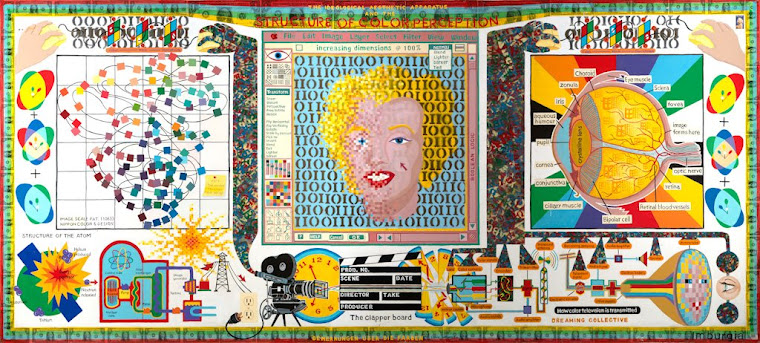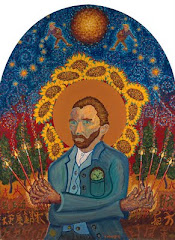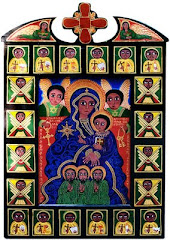To Let the Poem Be the Saying of Itself
"Fashion has two purposes: comfort and love. Beauty comes when fashion succeeds. Some people think luxury is the opposite of poverty. It is not. It is the opposite of vulgarity." Coco Chanel.
My poem of the week below was written while sitting alone and having lunch at the grocery store pictured above. First I was just eating and reading but then I started watching the other folks around me as they were watching/scrutinizing all the people coming into the store. I started writing something about this when I turned and saw that one of the watchers was watching me watch the other watchers watching. It was all kind of creepy really. These old watchers would often make comments about the appearance of the people that walked by, usually critical comments. And really they were not unlike professional cultural critics writing in scholastic journals about cultural anthropology and critical theory, except that they don’t get paid and they are easier to understand.
"Fashion was never anything other than the parody of the motley cadaver, provocation of death through the woman, and bitter colloquy with decay whispered between shrill bursts of mechanical laughter. That is fashion. And that is why she changes so quickly; she titillates death and is already something different, something new, as he casts about to crush her." (Walter Benjamin, The Arcades Project, pg 63).
It is common place for critical/cultural theorists and others to draw attention to mundane and banal cultural artifacts, fads, and habits. But surely Walter Benjamin’s “Arcades Project” is among the first and most comprehensive examples of this. I mostly read Walter Benjamin’s Arcades like a daily devotion, and I know several others who do as well. The devotional reading that I do most ever morning has changed slowly and very little over the years, it’s the one time that I like to stick to the familiar and just keep re-reading. For more than 30 years that has included folks like Carlo Caretto, Mother Teresa, Thomas Merton, Emmanuel Levinas, Rabbi Kalonymus Shapira, Dorothy Day, the usual ones y’all would expect (along with some well known poets etc.). I moved Benjamin into the rotation back in 1999 when the Arcades Project was first translated into English.
Now please understand that that quote above about fashion by Benjamin is not taken out of context, not in the way we usually think of context. And one of the things that Benjamin was challenging is our very idea of context. The whole project is a compilation of quotes, aphorisms, snippets of newspapers, short commentaries, poetry, etc., I reckon lots of younger folks might think that this all seems quite run of the mill. Among our facebook and blogging habits is to come across some interesting quote or picture online and then re-post it, usually with no commentary or explanation, and maybe (or not) get some sort of a conversation going in the comments. But I find that after awhile these corpse-less quotes on FB are quite unsatisfying and are actually getting a bit annoying. But I think that WB would have been interested in this kind of facebooking practice and I wish I knew what he might have written about FB and twitter, etc.. Indeed, my facebook wall is very much like some of the pages in Benjamin’s Arcade Project, but without the cats. Here’s an actual tiny sample of FB posts on my wall today:
1. A bible verse from the F.L.A. (Franciscan Lay Apostolate) and a picture of a praying nun.
2. A photo and a link to an essay by Paul Krugman.
3. Photos and a note from friends visiting Peru.
5. Photo and jokes by George Carlin
6. A groupon offer and photos of “Chinese Sky Lanterns with Fuel Patches from Sky.”
7. A FB friend informs us that he is going to “"Ghost Stories" Release Party” tonight.
8. Mark Zuckerberg himself informs me that he is going to host a fundraiser for New Jersey governor Chris Christie.
9. Two friends post pictures of dogs with witty inscriptions (no cats so far today).
10. Several tirades in support of/against assault rifles.
11. Several friends post music videos of their own or others.
12. Another friend posts his photos from Serbia
13. My own post of a photo and poem about catching the midnight ferry home to the island.
This kind of disjunctive flow of information that Benjamin thought might just help shock us into recognizing some sort of dormant revolutionary potential, mostly functions now as a way for late-modern capitalists to better track and manage our commodity fetishism. Consider this really insightful piece of dialogue from the movie “The Devil Wears Prada.”
Miranda Priestly: [Miranda and some assistants are deciding between two similar belts for an outfit. Andy sniggers because she thinks they look exactly the same] Something funny?
Andy Sachs: No. No, no. Nothing's... You know, it's just that both those belts look exactly the same to me. You know, I'm still learning about all this stuff and, uh...
Miranda Priestly: 'This... stuff'? Oh. Okay. I see. You think this has nothing to do with you. You go to your closet and you select... I don't know... that lumpy blue sweater, for instance because you're trying to tell the world that you take yourself too seriously to care about what you put on your back. But what you don't know is that that sweater is not just blue, it's not turquoise. It's not lapis. It's actually cerulean. And you're also blithely unaware of the fact that in 2002, Oscar de la Renta did a collection of cerulean gowns. And then I think it was Yves Saint Laurent... wasn't it who showed cerulean military jackets? I think we need a jacket here. And then cerulean quickly showed up in the collections of eight different designers. And then it, uh, filtered down through the department stores and then trickled on down into some tragic Casual Corner where you, no doubt, fished it out of some clearance bin. However, that blue represents millions of dollars and countless jobs and it's sort of comical how you think that you've made a choice that exempts you from the fashion industry when, in fact, you're wearing the sweater that was selected for you by the people in this room from a pile of stuff.
And what if this selection process (rather than ‘choice’) isn’t just about sweaters, sneakers, and snicker bars but also about selecting life partners, having children, going to war, or asking Jesus © into our hearts? Perhaps this is part of the reason why WB spent so much time thinking and writing about “fashion?” Let me offer three more quotes about fashion scattered about the Arcades:
N2a,3: “It’s not that the past casts its light on what is present, or what is present its light on what is past; rather, image is that wherein what has been comes together in a flash with the now to form a constellation.”
N1a,8: “Method of this project: literary montage. I needn’t say anything. Merely show [zeigen]. I shall purloin no valuables, appropriate no ingenious formulations. But the rags, the refuse — these I will not inventory but allow, in the only way possible, to come into their own: by making use of them.” (Zeigen: to show, to exhibit, to indicate, to say by pointing, to silently name.)
N1,10: “This work has to develop to the highest degree the art of citing without quotation marks. Its theory is intimately related to that of montage.”
N1,1: “In the fields with which we are concerned, knowledge comes only in lightning flashes. The text is the long roll of thunder that follows.”
Fashion, WB argues, is one place where we can see the old and new encounter one another and form what he calls elsewhere a “dialectical image.” These images often come to us as just “flashes,” but these flashes may have messianic potential in as much as they combine to form for us new apocalyptic constellations of meaning. This reordering of cultural constellations has liberating potential according to WB, but this same dialectical tension also flashes on the possibilities of life and death inherent in every encounter; that is, fashion can be understood as a parody of life that reveals us to ourselves that we are little more than walking corpses entombed within the manifestations of our varieties of appearing. It is these relationships among Being and appearing to be, and commodity fetishism clashing with or mimicking our repressed utopian desires, that suggested to WB that fashion was one of the more obvious places that we witness this dynamic among inexhaustible signifiers and where we may confront and challenge all the ideologies of progress. (As a side note let me just say that this is part of the reason I started painting Icons more than 25 years ago and why I don’t sell them. I wanted to have one aspect of my own creative potential disengaged--as much as possible, and that ain’t much--from the totalizing meta-narrative of ‘market values.’ When I started painting icons I didn’t know any one else who was painting them. I assumed that I was the only one and I painted them just to look at enjoy my self and maybe my friends and family. But about 10 years later I started finding others who were painting icons too, and then there were people offering classes and ‘how to books.‘ Now copying these old ‘outmoded‘ works of art is flourishing racket in this age of light-speed reproduction, and so I reckon it’s time for me to quit painting icons and try marketing poetry?).
Pictured above is a 20 year old painting of mine that was inspired by reading Benjamin’s “A short history of Photography,” the book I’m quoting from in the painting (if you think that I am pedantic now let me point out that this painting has footnotes on the bottom to faint for you to see in this photo LoL). This is what is printed in the page in the painting:
“The most precise technology can give its products a magical value such as a painted picture can never again have for us. No matter how artful the photographer, no matter how carefully posed his subject, the beholder feels an irresistible urge to search such a picture for the tiny spark of contingency, of the here and now, with which reality has (so to speak) seared the subject, to find the inconspicuous spot where in the immediacy of that long-forgotten moment the future nests so eloquently that we, looking back, may rediscover it. For it is another nature which speaks to the camera rather than to the eye: “other” above all in the sense that a space informed by human consciousness gives way to a space informed by the unconscious.”
I hope you appreciate this poem and thank you for bearing with me. And may this poem be the saying of itself.
A Working Class guy eating Lunch at Payless Grocery Store Writing a Poem That Might Be Called, “The Tree Of Life,” or “The Dialectics of Perception” (or something better or simpler, I’m open to suggestions).
She has two little blonde kids, blonde like her
But really they could be anybody’s
She stops to disinfect her self and
The one kid makes a break for it
She threatens him with home
That’s enough to coerce both kids back into a
Monstrous shopping cart molded in the shape of a limousine
Why not the shape of a freight train or container ship?
Something big enough to hold everything?
She consults her list and heads off towards the deli
List people have a different relationship to the world than
Those who risk it with their memories and impulses
(interestingly, most serial-killers are list makers)
But I wouldn’t judge without all the facts
Objects in this universe are strategically placed to
Ambush, maximize exposure, ensnare, seduce
Nothing is left to chance
Everything is faced right to the edge
She often holds herself responsible
Her eyes are tired, her whole body sags
Only someone old would still call her young
One kid grabs for the box of “mini donuts”
She slaps his hands and they fall and break open on the floor
The more food that we miniaturize the
Fatter we seem to get
Somebody will have to clean this whole mess up someday
Around me sits the same group of old people who
Meet up here to visit, drink cheap drip and snack on free samples
Abandoned, lonely, fixed income, marginal consumers
It just now occurs to me that they assume that I’m one of them
We silently scrutinize everyone that comes and goes
Powerless to make the least bit of difference
Yet each shopper must pass before our gaze
Look, I see the songwriter T.H. checking out, he doesn’t see me
He’s a poet of sorts too, but it’s me writing this poem
Me with the power to make him into anything at all
I could miniaturize him and who’s to stop me?
I could write any damn thing I want
Later I hear a bottle crash, “courtesy” is called on the loudspeaker
I’m guessing it’s the grabby kid again?
But I shouldn’t judge without all the facts
I get up for another free sample
They have put out “mini muffins”
This will be my third one and the pastry checker gives me a look
I see the kids have been crying when mom returns with a full cart
Shopping traumatizes children who have already grasped
The vital connections between desire, things, and happiness
Yet have no understanding of Capital, currency, or exchange value
The invisible connections really binding us all together
She double checks her list then tosses it in the trash in front of me
Of course I had to look, had to know for sure
I unwad the pink crumpled letter of herself
This tally of everyone’s needs, cravings, addictions
Just as I suspected every word was struck through, crossed off
Oh, now I notice that she has one sparkling zircon pin in her right nostril
The kids are really acting out now, so she switches from threats to bribes
“Be good and take my hand and you’ll get a treat in the car”
Once she had said yes to a bargain just like that one
She left after midnight for Portland with a guy she hardly knew
She got stoned, danced all night, got knocked up, had her nose pierced
And none of that was on any list
Obliged.

















No comments:
Post a Comment